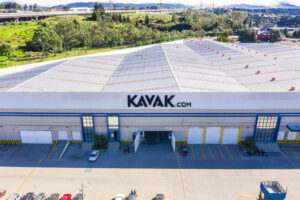
Por Victor Cortés
December 21, 2018
Contxto – So, 2018 was quite interesting. This year we saw Dr. Dre lose a lawsuit against an actual doctor named Drai. We also saw a Robot run for mayor in a Japanese city.
But above all, a lot of great things happened in the Latin American startup ecosystem.
It was a year of big
Scroll down to see the region’s good, bad and ugly!
There’s a rapid growing environment in technology among Latin American countries. The overall population is becoming more and more tech friendly, as smartphone adoption climbs to 43.5% of the population in the region.

Six years ago only 13.4% of the population had a smartphone. Now even my little cousin knows more about encrypted wireless mobile P2P interactions than I do. Little smart-ass.
Internet penetration is also increasing quickly. Representing 10.3% of the total internet users in the world, the region has an average 65% internet penetration among the inhabitants. Although, the variation gap is quite wide. Honduras has the lowest rate with only 28%, while Argentina has the highest with a sound 93%.
Of course there are some spoiled childs. The investors’ favorites of this year were:
Fintech: The Fintech industry is hot! Picture this, over 50% of Latam’s population is under or unbanked, while 65% already has internet access. That’s just absurd.
Since financial inclusion and underwhelming banking services are part of Latin America’s everyday life and people are getting more digital; many entrepreneurs have felt the urge to do something about it. And investors are loving it! This year we saw a total amount of USD $337M poured across 35 different deals. Supa’ hot!
Marketplaces: The ultra viral business model. Based on third-party economics, these companies took advantage of the general market needs to profit on its natural inefficiencies.
They are asset-less and employee-less, meaning that they do not need in-house employees to sell stuff or provide services, and they do not need to own those products or services. That’s what makes these platforms so scalable. Venture capitalists know that, and that’s how 10 companies managed to raise over USD $200M!
Agrotech: Probably you know how important farming and the agriculture industry is for latin american countries. Providing over 15% of the total job market, these companies are starting to upgrade their processes. The future of agro is in tech, and these 17 startups raised over USD $41M, to help the countryside people improve their businesses.
Football is not the only thing these countries are constantly competing on. Talking about tech development, Brazil and Mexico are the region leaders, no doubt. The two countries are frequently found among the highest ranked countries in tech-related statistics, such as the following:
a) Out of the top 10 largest markets for Facebook: Brazil #3 and Mexico #5
b) Out of the top 10 most internet-active countries: Brazil #2 and Mexico #6
c) Out of the top 10 most social media-active countries: Brazil #2 and Mexico #4
d) Out of the top 15 largest e-commerce markets: Brazil and Mexico
Now, in terms of Venture Capital specifically, during the first semester of 2018, the region raised 68% of the total amount raised during the entire 2017.


In this spectrum, Brazil is also the clear dominant player.
To put things into perspective, just in the first half of 2018, Brazilian startups raised more money than the whole region did in 2016. During that period, 88 brazilian deals led to USD $546M in investment amount.
In contrast, Mexico, increased its investment volume with over USD$75M across 23 startups.
Argentina and Chile also grew exponentially, 515% and 248%, respectively. Ending up with a total of USD $38M invested in Argentinian startups and USD$11M in Chilean ones .
Colombia raised more money, ending up at USD $92M but grew at a lesser rate nonetheless (36%).
Now, don’t chant victory yet. Just because the whole country does good, doesn’t mean the individual companies do too. Let’s take a closer look at these following companies evolving into mythological creatures.
The Good
In 2018 we saw more unicorns than we did in the last My Little Pony season (great season, btw).
Brazil also led the region’s unicorn development, and Colombia’s first emerged, too! Apart from that, other interesting transactions took place this year.
Three days into 2018 and we got to see the first unicorn of the region. After Chinese Giant, Didi Chuxing confirmed it was acquiring 99% of the brazilian ride-sharing company for USD$900M, the divine status of the company was revealed to us all.
January was Brazil’s hottest month (not talking about the weather here). A few weeks after 99’s acquisition, PagSeguro, the online payments company, IPO’ed and successfully raised USD $2.3B from NYSE investors, officially positioning as an unicorn.
In march 2018, the brazilian digital bank officially reached unicorn status when it closed its Series E round. The funding was led by the Founders Fund, Redpoint eVentures, Ribbit Capital, QED Investors, Dragoneer Investment Group and Thrive Capital for a total of USD $150M. Nubank is now Brazil’s third Unicorn!
September was the month when the “everything-delivery” app became a mythological horse. Securing a funding round of USD $200M from investors like DST Global, Sequoia Capital, Andreessen Horowitz and Endeavor Catalyst, Rappi emerged as Colombia’s first unicorn.
Ascenty is a data center provider. The Private Equity firm, Great Hill Partners, exited their position as the majority stakeholders of the company. The acquirer, Digital Realty bought the shares at a valuation equalling USD $1.8B. What’s that? Unicorn? Damn right it is!
Brazil again, baby! Not leaving space to their competitors. The payments startup, Stone Pagamentos, raised USD $1.1B from Nasdaq investors. The IPO attracted the attention of Berkshire Hathaway, Ant Financial, Madrone Partners, Tiger Global Management, Gávea Investimentos, Valor Capital and the founders of 3G Capital.
In September Arco filed for an US IPO and it managed to raise USD $220M. However, a few days later the stock prices soared reaching a market cap of USD $1.2B. Becoming an educational unicorn.
Finally, in November of this year, iFood received the largest funding round in Latin America’s history. Landing a USD $500M investment from Naspers and Innova Capital, and complemented by its parent company Movile and previous investor JustEat, the company confirmed its unicorn status.

Although not unicorns, these companies had remarkable events happening in 2018. Worth acknowledging!
These guys are now sitting in the grown-ups table! They’re the first Mexican startup to raise money from Sequoia Capital. The startup is a platform for industrial companies to keep innovating and fostering their internal improvement system through employee communication. The “digitized kaizen platform”, as the call themselves, based in Guadalajara, raised a USD $2.25M round led by Sequoia and Zetta Venture Partners.
Okay, I don’t even know where to start, so here’s a brief timeline of Grin.
April: Founded
July: Accepted into Y-Combinator
September: Seed Round for US$20 million
October: Series A for USD $45.7M
October: Merges with Brazil’s Ride
Also October: Partners with Colombia’s Rappi
This is what a fast pace looks like. It’s crazy how much the company has already accomplished in a matter of months.
Chilean retail brand acquired e-commerce startup Linio for US $138M, last august in order to improve Falabella’s online presence.
Following the same e-commerce trend. Walmart acquired Chilean/Mexican grocery delivery platform Conrnershop for US $225M, last September. AliExpress and Amazon are like buldozers in the e-commerce space, that’s why even Wal-Mart is actually trying to catch up with these guys.
The Bad
While most players in the startup ecosystem are working together to develop a stronger community. Some participants aren’t that forward looking. Some governments, for instance.
The Instituto Nacional del Emprendedor was cancelled by the mexican government, generating confusion and uncertainty in the ecosystem and lack of trust in the government’s plans to support entrepreneurship.
Many think it was a low blow, since INADEM was one of the first public institutions to show support to startups. It participated in the fundraising of several mexican VC firms, such as ALLVP, Variv Capital, Angel Ventures, Ignia Partners, among others.

Subsequently, AMLO’s government cut the amount of public spending in Tech and Innovation by 13.6%. However, some of those resources were destined to universities R&D budgets and after some days of social media discontent and backlash, he had to adjust the budget.
Anyways, the ecosystem will have to move forward and push through even with new obstacles and limitations.
I just googled “Cybersecurity Latin America”. I don’t even where to start.
Brazil and Mexico are still crushing headlines, but this time they might not be as cool as before.
Brazil is number 7 among the countries with the most ransomware attacks, while Mexico occupies the 8th position.
In Latin America, there are in average, 33 cyberattacks every second.
The Mexican Central Bank (Banxico) was hacked in April of this year. The attack infiltrated approximately 836 individual accounts, in 10 different banking institutions, costing over USD 16M in damages.
Banco de Chile was victim of a hack attack with over USD $10M stolen.
Not to mention 2017’s data breach regarding Taringa’s user information, where over 28 million emails and passwords were exposed.
Final fact, this year 9 out of 10 banks in Latin America suffered from a cybercrime attempt. Although only 37% were succesful, this is still a major red flag for the new digital economy.
Fortunately, there are some initiatives trying to tackle the situation. The Tecnológico de Monterrey, in partnership with Cisco, Citibanamex, Deloitte, IBM and Thales Group, created the first Latin American cybersecurity hub, aiming to connect startups, researchers, professors, students and investors currently targeting the matter.
The Ugly
Unfortunately, not everything is ideal and rosy. There are ugly things going on in the ecosystem. Some of them which we might not even know about, yet.
So, the nomination award for the ugliest-of-them-all 2018 goes to…

For the guys out there living under a rock, here’s a quick recap of what happened.
Yogome was a mexican startup focused on creating educational videogames for children. It was part of 500 Startups batch, and returned 8 times the fund for Mexican.vc, its original backers. It was a child prodigy.
However, Manolo Díaz, the company’s CEO was actually mismanaging the company, inflating the number of users and revenue metrics the App Store provided. Basically “cooking the books” to impress the investors.
Some little time after they raised a USD $26.9M round from international investors, including Seaya Ventures, an employee found out about the long-lasting fraud and decided to speak up. Ultimately, the Board decided to shut down the company.
Well, opinions were very diverse. Here’s what some VC’s had to say:
Some of them really showed discontent, and thought this was a major event.
“This news will make it harder to raise capital in Latin America. It will raise the expectations for transparency, corporate governance, and best practices…”
– Santiago Zavala, 500 Startups
Some believed it was a one-time case, and it’s not necessarily an upcoming trend.
“This happens everywhere. I don’t think it’s going to scar the entrepreneurship ecosystem”
– Fernando Lelo De Larrea, ALLVP (Expansión)
“This is an isolated case, we’ve made 10 investments in startups and we’ve never had anything like this happening to us”
– Rodrigo Villar, Adobe Capital (Expansión)
Others saw this as a learning experience.
“We need to do more detailed revisions in revenue audits, and use more sources when gathering information”
– Diego Serebrisky, Dalus Capital (Expansión)
Bonus Point: The best of the year!
Contxto arrived to stay.
– Contxto, Contxto 2018
You read that right! We believe there are amazing things happening in our region, but not many people find out about them!
The amount of media exposure to Latin American tech, startups and investors is just underwhelming and we saw the need to shine the spotlight on them!
Contxto is here to reveal these companies to the rest of the world! Information is obscure, data is not accurate, but our mission is to change that.
So stick with us! If you liked this article, subscribe to our website, follow us on Social Media (Twitter, Instagram, Facebook, LinkedIn) and please share this with people you think would enjoy it, too!
Merry Christmas and Happy New Year!
– The Team

Por Yanin Alfaro
February 17, 2026

Por Israel Pantaleón
February 17, 2026

Por Stiven Cartagena
February 13, 2026